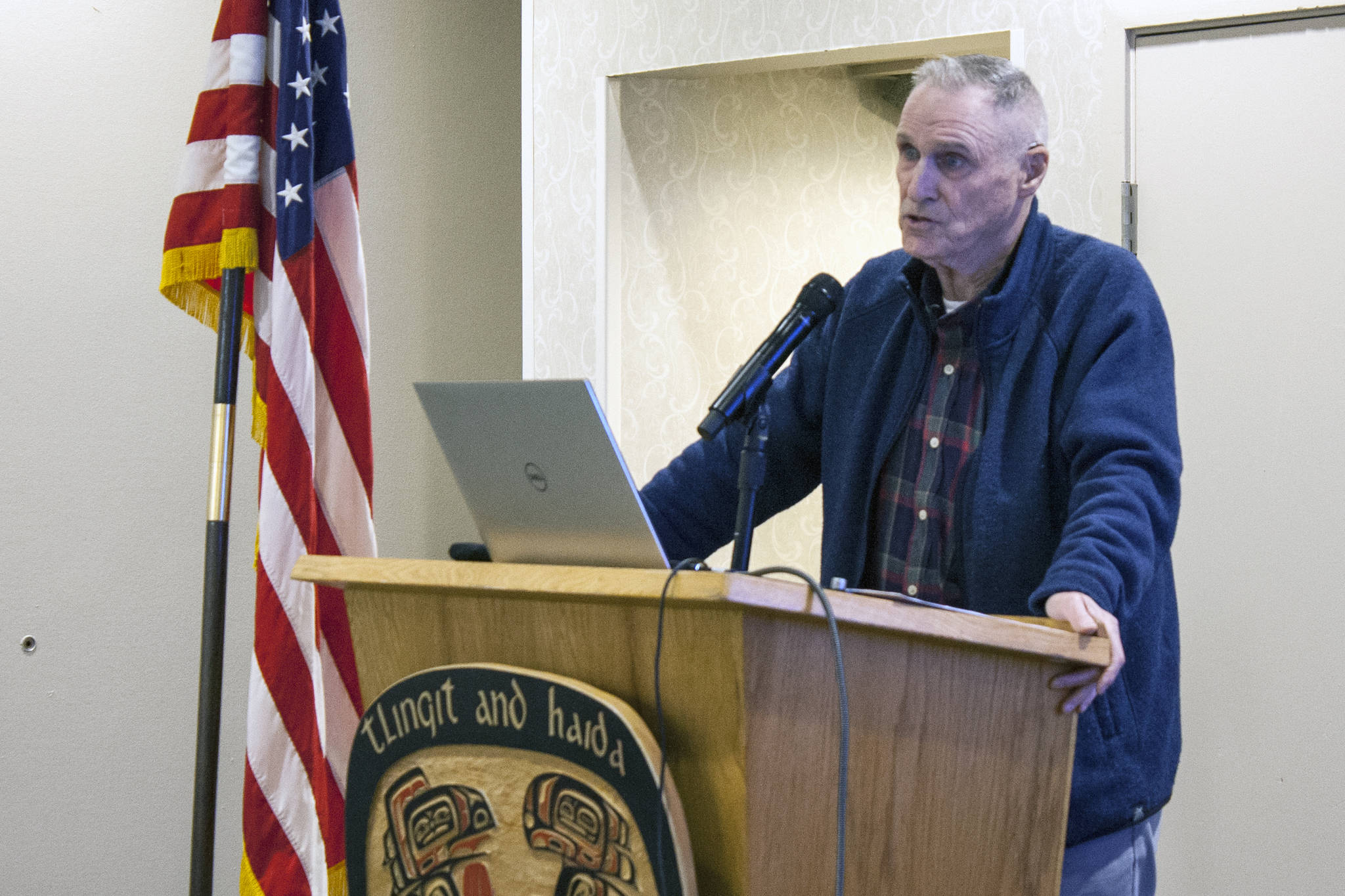Bill Corbus’ message is cut and dry: Don’t support the initiative that would remove oil tax credits and raise taxed on oil production.
Corbus, former revenue commissioner from 2003-2006 and past president of Alaska Electric Light and Power Company, spoke Thursday at the Greater Juneau Chamber of Commerce’s meeting, and made his case against the Alaska Fair Share Act.
[Opinion: We need to encourage investment in Alaska]
The proposed act, which could appear as an initative on ballots in November, would apply to Alaska’s three “legacy” oil fields — Prudhoe Bay, Kuparuk and Alpine. Corbus said it could also apply to the planned Willow oil development. It would increase the gross minimum production tax, eliminate per-barrel credit provided to oil producers in the net production tax, make tax returns and other documents from oil and gas producers public information and prevent companies from deducting costs at other fields from tax payments at the legacy fields.
“My message is: Alaska, don’t go there,” Corbus said.
The act is intended to generate roughly $1 billion per year, according to Vote Yes for Alaska Fair Share, a group advocating for the initiative. That sum would go a long way to keep Alaska from spending at a deficit — a $1.5 billion deficit is built in the governor’s proposed budget — or at least reduce the amount of reserves being spent.
Corbus said the act could be a remedy for budget problems in the short term, but in the long run it would make Alaska a less attractive place to invest. He said that could mean less revenue for the state in the future, and it could cause oil companies to change already-known plans for investment.
“They’re planning on investing $11 billion in the next 10 years on the three legacy fields, and then they’re also planning on $13 billion for new fields,” Corbus said of oil companies.
He said if oil companies are taking in less money, they may decide to spend less money on those investments or take their business someplace else.
“I think they’ll probably be looking elsewhere,” Corbus said after his presentation in a short interview.
Vote Yes for Alaska Fair Share, an organization that supports the potential initiative, did not immediately return a call or email seeking comment, but disputes that notion in the frequently asked questions portion of its website. Vote Yes for Alaska Fair Share contends the act could open up the North Slope to new investors.
[Empire Live: Chamber speaker slams Fair Share Act]
“The Fair Share Act only applies to the largest and most profitable legacy fields,” reads the site. “It continues to encourage new producers and explorers to invest under the existing incentives. It also reduces the legacy producers’ unfair competitive advantage by no longer permitting them to deduct unrelated development costs for new fields from Alaskans’ share of the major legacy fields.”
Corbus said after his presentation that he is aware there is some concern about what continuing-to-develop alternative energy sources could mean for the future of the oil industry, but planned investments indicate that it is not universally accepted that those will supplant oil.
“Some people seem to feel that,” Corbus said. “The oil companies apparently don’t.”
Corbus was asked during a short question-and-answer session that followed his presentation if there was something the Legislature could pass that might preempt the initiative appearing on ballots —some sort of bill that might strike a compromise between leaving things as they are and the contents of the Fair Share Act.
“As far as what the Legislature should do to balance the budget, that’s above my pay grade,” Corbus said. “Somebody else can figure that out.”
• Contact reporter Ben Hohenstatt at (907)523-2243 or bhohenstatt@juneauempire.com. Follow him on Twitter at @BenHohenstatt.

